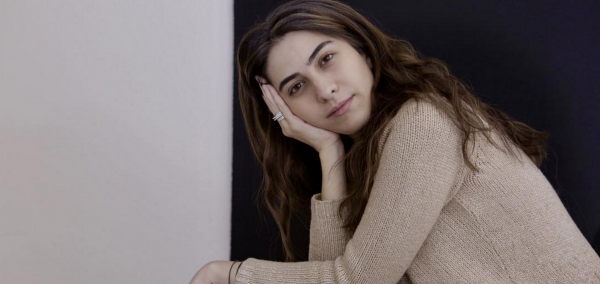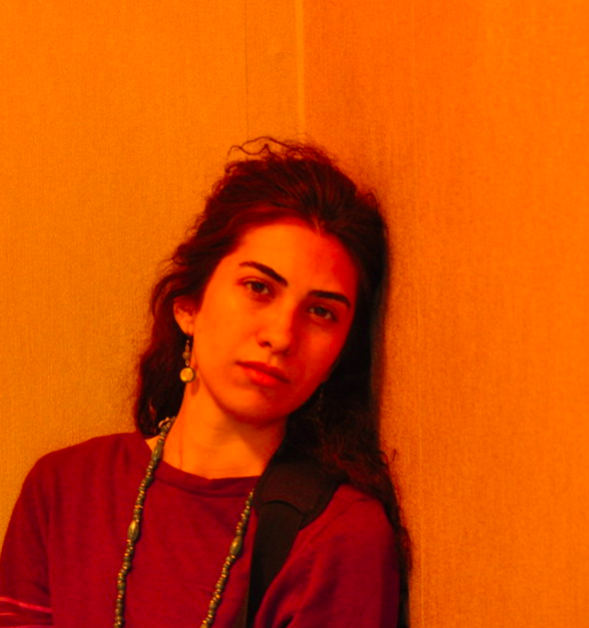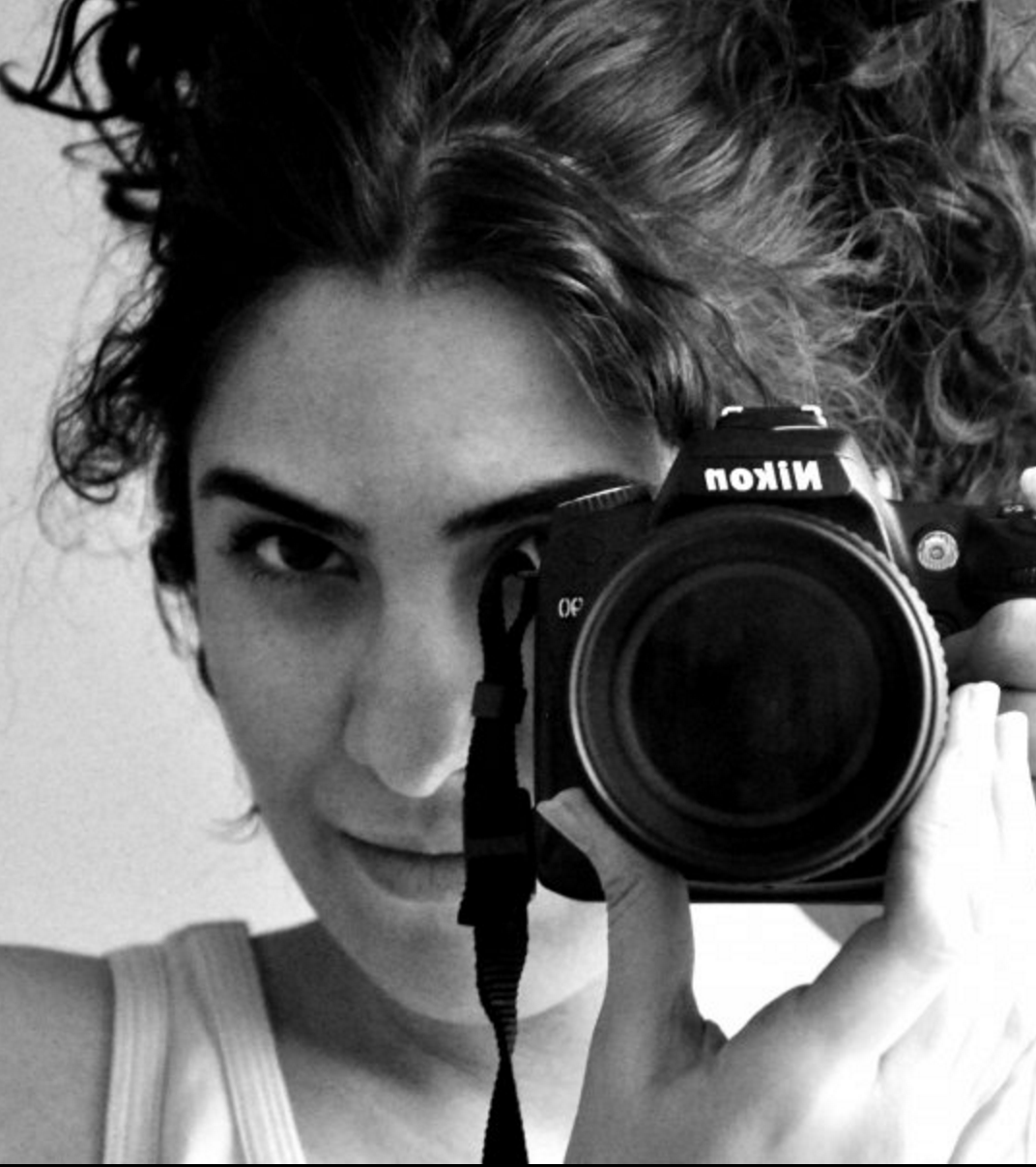Source: www.thetab.com

‘You never think the horror stories are going to happen to you’
Born in Tehran, Iran, Nasim Biglari is a twenty-nine year-old visual art and media student at the University of California, San Diego. She is a follower of the Bahá’í faith, which believes in the unity of mankind and equality of all humans regardless of race and gender. It is not recognized by the Iranian government as a legitimate religion, and, therefore, she did not have the right to higher education.
When she graduated from high school, she would be ineligible to go to college because of her religion. Nevertheless, she continued to defy boundaries, constantly proving that she is a force to be reckoned with.
This is her story.

Before I left, Iran was in the middle of a political chaos. The Green Party was protesting the 2009 election of Mahmoud Ahmadinejad for they thought that he had acquired the position using fraudulent voting. Protests rang through the streets from his election until late in 2010. Our world was on fire, and neither side was doing their part to resolve it.
That fall, the whole city was on edge when Muharram Observances arrived. Muharram Observances, also known as the Mourning of Muharram, are a set of rituals that mark the anniversary of the Battle of Karbala when the grandson of Muhamad was killed. People flood the streets, flags flutter through in the air, food is distributed. No matter what religion you were , everyone participated in the remembrance of the deceased Imam.
As the streets began to flood with people, I left my house with my cousin, taking my camera. Not long after I stepped out into the dusty streets, police started to throw tear gas into the crowds. It was just a festival, but they were afraid of the always-impending conflict. As the clouds of gas forced the participants out of the streets, tears started to stream from my eyes. I do not know if it was the gas or the fear that caused my eyes to flood, but whatever it was made it hard for me to see.
Policemen with helmets and goggle-like glasses started to make arrests, grabbing anyone they could find and placing them in the custody of the government. Sprinting, I found a car parked on the side of the road. I opened the passenger side door and begged the family inside to let me in. Just for a few moments. They looked just as scared as I was, yet they let me into their vehicle, offering me a brief reprieve from the turmoil outside. When the police had gone, I got out of the car, held my camera against my breasts, and ran as fast as I could back to my house.
I always thought that my home would keep me safe.
A few nights later, loud bangs on our front door rang through my house, rustling my family awake. Like an electric shock, I sat up in my bed. I knew exactly what was going to happen.
You never think the horror stories are going to happen to you.
Five government officials busted through our door and started to frantically search our house. As they scavenged through our belongings, we could do nothing but stand and wait, praying that it would be over soon.
The men went into my room, immediately picking up my school papers that were on my desk and reading through them to find information. One went to my closet and emptied all of my suitcases and backpacks onto the floor. On my wall, I had a card given to me by a child that was adorned with flowers and my name. The leader of the group took it down and looked me in the eyes, saying that the document was enough to arrest me. A letter from a child with nothing other than “I love you, Auntie Nasim” as its contents.

The policemen arrested me right there in my room. I did not have any choice. You can’t say no.
When we got to the car, someone was waiting in the driver’s seat. I was stuffed into the back of the car and instructed to put my head down. No one was supposed to see me in their custody, but more importantly, I was not allowed to see where I was going. The driver passed me a blindfold, and my world went dark as my vision was snuffed out like a light.
My palms were sweating. My blood had turned cold, afraid of what might happen to me.
As fearful as I was in the car, I was even more terrified when it stopped. Time felt like it was moving at a snail’s pace, and my heart beat against my chest, trying to break free from its cage. I was led into a room, and the lights were on. From underneath the blindfold, I could see soldier’s feet lining a bright red Persian rug and other captives sitting on the floor.
Ten other people were in the room with me. Each one I knew personally. Each one Bahá’í.
Every hour or so, government officials would come into the room and ask us questions that we did not know the answers to, sure that we were revolutionaries. “I don’t know” was never a good enough answer, and their intimidation tactics elevated from yelling to slapping quickly. While the abuse was painful, it was better than the unknown. The waiting. In the solitude, you think of all the ways they could kill you and all the reasons why they would want to. Our minds race when fear and adrenaline take over.
After about ten hours, two men came into the room. They picked me up from the floor by my arm, leaving fingermarks on my skin. They took me out of the room and outside. “Your father bailed you out,” one of them said to me flatly. They took off my blindfold, revealing my father in front of our car. I had been freed.
Everything changed after that. The ten others that I had shared a room with were transported to prison the day after my release, my cousin being one of them. I was no longer safe.
From that point on, I was going to be hunted, a doe that runs frantically through the woods in the hopes that she can outrun the camouflaged man with a gun. The government was going to do whatever they could to keep me in their custody, and I had to leave.
I had heard of a Jewish organization in Austria called HIAS that helps refugees find a permanent home in the United States. If I did not try to escape, I would most surely be locked away for the rest of my life. I knew no matter where I hid, they would always be able to find me. Out of sheer luck, I made it onto a plane and went to Austria, leaving behind my family and my hunters.
I met with lawyers at HIAS, and they worked with the United States Citizenship and Immigration Services (USCIS) to fast track me as a permanent resident green card holder. The entire process took about five months, and I was kept in limbo, praying for solace in what I had heard was the land of the free.When my status was approved, I took a flight to Los Angeles. Finally, I was safe.

I should have known after all that I went through that I am never safe. Not in my hometown. Not in my childhood home. Now, not in America. I scroll through the news frantically on my phone, hoping that I will hear good news. Every day, it is something else that threatens my safety. As I read through the headlines, I am brought back to my ransacked home, the red Persian rug, and the darkness that enveloped me both physically and mentally. Election day made me on edge, but the travel ban rocked me to my core. I have not seen my father in seven years, and he was supposed to come visit me. I keep praying that I have not seen him for the last time.
I am a proud follower of the Bahá’í faith, and I cannot return to Iran because I will be persecuted. I am worried that if I stay in the United States, that I will face the same future. It seems that no matter where I turn, a different set of hunters is after me.
In America, I still have the right to pursue a career. I can still take photographs and show the limits of middle eastern women all over the world. Eyes capture the color of everyday life, and it is through my art that I hope to inspire hope. No matter how terrified I become, I know that I am stronger than those who are trying to destroy me. I have lived through violent protests. I have lived through abuse. I have lived through imprisonment. I have lived through religious persecution. I have lived.
Never will I give up my fight.
Leave a Reply